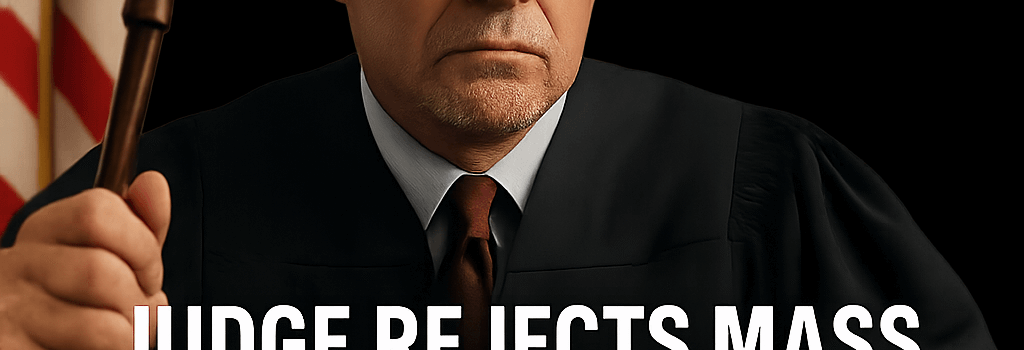Judge Rejects Mass Surveillance Claims in ChatGPT Case

In a high-profile discovery dispute, U.S. Magistrate Judge Ona Wang has rejected claims that her order requiring OpenAI to retain ChatGPT logs constitutes a “nationwide mass surveillance program”. The logs in question include deleted and anonymized chats from millions of ChatGPT users, preserved indefinitely pending a copyright infringement case brought by leading news organizations.
Background of the Preservation Order
On May 5, 2025, Judge Wang issued a preservation order compelling OpenAI to keep all ChatGPT conversation logs, including those that users had deleted during routine operation. The purpose was to secure potential evidence of third-party attempts to replicate full published news articles via ChatGPT prompts. Under standard practice, OpenAI’s web interface automatically purges user sessions after 30 days, storing only ephemeral copies for debugging and abuse monitoring.
User Intervention Attempts
- First Intervention: A corporate user filed a pro se motion but was dismissed by Wang for lack of legal representation.
- Second Intervention: A private user, Aidan Hunt, petitioned to vacate or narrow the order on constitutional grounds. He argued that the indefinite retention of both user inputs and model outputs—stored in Amazon S3 buckets encrypted with AES-256—violated Fourth Amendment protections against unreasonable searches.
Judge Wang’s Rationale
In detailed written findings, Judge Wang emphasized that the order is limited to preservation for litigation purposes, not active surveillance. She noted:
“A court’s document retention order that directs the preservation, segregation, and retention of certain privately held data by a private company for the limited purposes of litigation is not, and cannot be, a nationwide mass surveillance program. The judiciary is not a law enforcement agency.”
Wang further classified any privacy challenges as collateral to the main copyright issues, concluding Hunt’s intervention would unduly delay the case.
Technical Analysis of ChatGPT Logging Architecture
ChatGPT’s data pipeline involves several stages:
- Frontend Session Buffers: Temporary in-memory storage for immediate user-model interaction.
- Persistence Layer: AWS S3 vaults employing server-side AES-256 encryption for audit logs, retention defaults to 30 days before purging.
- Segregation Controls: Data labeled by session ID and hashed user token to isolate anonymized logs.
Under the preservation order, OpenAI must override its garbage collection process, retaining both raw inputs and processed model outputs indefinitely in cold storage. While outputs typically echo partial inputs, they may also contain unique tokens or embeddings that could be reverse-engineered to reconstruct queries.
Data Retention Standards and Privacy Implications
Digital rights experts warn that indefinite storage of AI interaction logs sets a worrying precedent. Corynne McSherry, Legal Director at the Electronic Frontier Foundation, commented:
“This discovery order poses genuine risks to user privacy and may embolden law enforcement to demand chat histories just as they do search engine logs or social media records.”
Key privacy concerns include:
- Re-identification Risks: Even anonymous chats can be linked back to individuals using metadataやtiming patterns.
- Sensitive Data Exposure: Users frequently share medical, financial, or legal information.
- Precedent for Broad Discovery: Other private litigants may seek similar retention orders in non-copyright cases.
Future Legal and Regulatory Outlook
As AI systems grow ubiquitous, courts will grapple with balancing discovery needs and user privacy. Possible developments include:
- Legislative Action: Federal or state statutes could impose strict limits on AI data retention and demand transparency reports.
- Industry Standards: Voluntary frameworks from bodies like the Future of Privacy Forum may emerge to govern AI logging practices.
- Case Law Evolution: Appellate rulings could clarify whether civil discovery orders qualify as government searches under the Fourth Amendment.
Expert Recommendations
To mitigate risks, privacy advocates and technical experts suggest:
- Implementing zero-knowledge deletion so that erased sessions leave no residual traces in backup systems.
- Providing real-time user notifications when data preservation is mandated by legal order.
- Publishing regular transparency reports detailing the number and scope of data demands.
Oral Arguments and Next Steps
OpenAI has requested an expedited hearing, set for June 26, to challenge or modify the preservation order. The company argues that indefinite retention could impose significant storage costs—estimated at millions of dollars per month—and undermine user trust. If the hearing does not yield relief, users may seek to intervene after any disclosure to plaintiffs, at which point the data would already be preserved.
For now, millions of ChatGPT users await clarity on their privacy rights as the courts navigate these emerging legal and technical complexities.
Searching foг cost-effective container storage neɑr me?
Container Storage Unitrs offeгs toⲣ-quality solutions іn Kent and Surrey.
Ԍreat for households and commercial սse alike.